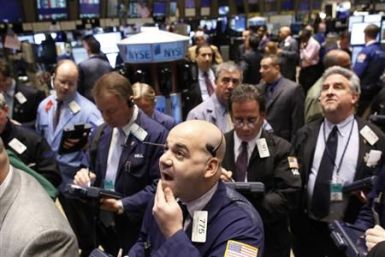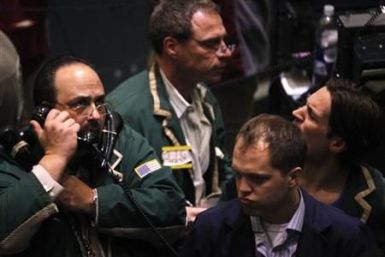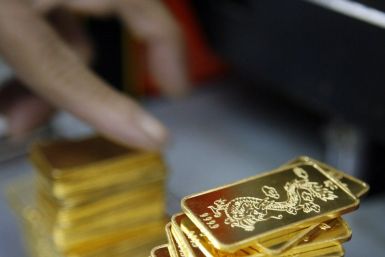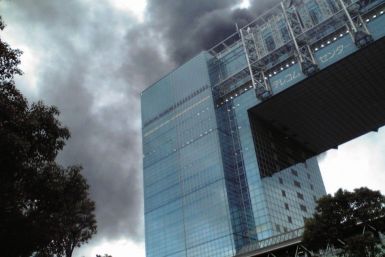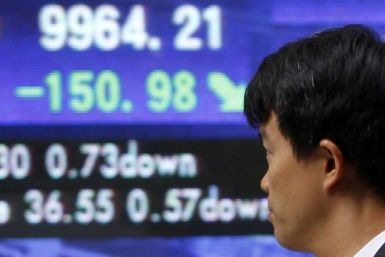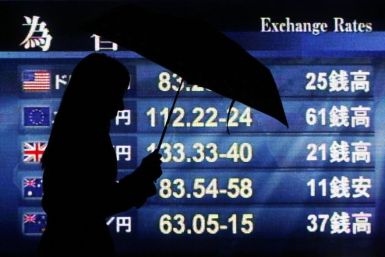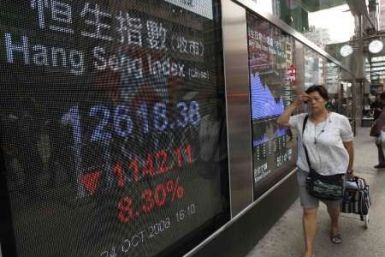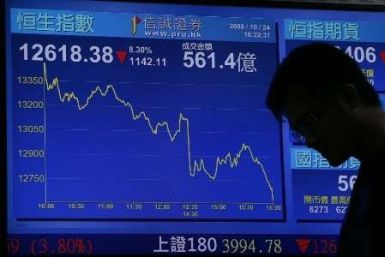Mizuho Bank <8411.T> said that all of its automatic teller machines throughout Japan and its Internet transaction system have stopped working on Thursday, after computer glitches disrupted $7.3 billion worth of transactions over the previous two days.
Asian financial markets rallied on Wednesday, with Tokyo stocks rebounding 5.7 percent after a steep two-day sell-off on Japan's killer earthquake and unfolding nuclear crisis.
The Tokyo Stock Exchange said it has no plan to suspend operations despite steep falls in share prices after Japan's devastating earthquake and tsunami, responding to rumors in the New York market that the bourse would close.
The Gold Price dropped 3% to four-week lows vs. a rising US Dollar on Tuesday morning, as world stock-market and commodity prices sank on worsening radiation leaks from north-east Japan's earthquake-hit nuclear plants.
U.S. stocks plunged in early trade on Tuesday, following sell-off in European and Asian stock markets amid fears of a nuclear disaster in Japan.
U.S. stocks plunged in early trade on Tuesday, following sell-off in European and Asian stock markets amid fears of a nuclear disaster in Japan.
U.S. stock futures point to a sharply lower opening for Wall Street Tuesday, following slump in European and Asian stock markets amid fears of a nuclear disaster in Japan.
Japanese stock markets slumped for the second day on Tuesday on escalating fears of a nuclear crisis after a radiation leak was detected at the Fukushima Daiichi nuclear plant and residents were warned to stay indoors.
Gold Bullion prices jumped at the start of Asian trade on Monday, gaining 1% against all major currencies as news broke that a third nuclear reactor north-east of Tokyo has gone into meltdown following last week's Japanese tsunami.
Japan's equity futures fell 6 percent on Monday as investors took stock of the economic damage from the massive earthquake and tsunami that devastated the country's northeastern region.
A devastating earthquake hit Japan off the coast of Sendai, sending tremors and resulting tsunamis in the surrounding area.
Oil prices dropped to near $101 a barrel in Asia on Friday, after a powerful earthquake measuring 8.9 magnitude on Richter scale hit off Japan.
Shares of RC2 Corp. (RCRC) touched a new more than 3-year high of $27.59 on Thursday, shortly after the Nikkei business daily first reported that Japan's Tomy Co. Ltd. and RC2 were in merger talks.
U.S. stocks ended higher on Tuesday, as oil prices eased to below $105 a barrel and financials rallied on upbeat profit forecast from the Bank of America.
Asian stock markets declined first time in three days on Monday as sentiment was dampened by higher oil prices amid continuing political unrest in the Middle East.
Most Asian stock markets ended higher on Thursday, helped by upbeat U.S. jobs data and an easing of oil prices after reports of a possible peace deal in Libya.
Hong Kong stocks are set to rise slightly on Thursday as investors seek bargains amongst Chinese shares listed locally as mainland markets look poised to continue their outperformance relative to the region.
Asian stocks ended lower on Wednesday, following declines in the Wall Street overnight on concerns that rising oil prices could hurt economic recovery.
The value of China's exports of rare earth ore, metals and compounds in January jumped nearly fivefold, or 376 per cent, from a year earlier to $148.3 million.
Asian stock markets advanced for the first time in five days on Friday as oil prices fell below $100 a barrel on easing concern about supply disruptions.
Hong Kong stocks may receive respite from good corporate results on Friday, but will remain under pressure and will likely trade in a narrow range, weighed down by concerns about volatile oil prices and ongoing turmoil in the Middle East.
Hong Kong stocks are expected to open lower on Thursday, pressured by a surge in oil prices on fears turmoil in Libya could spread to other oil exporters in the region, and declines in global markets.








